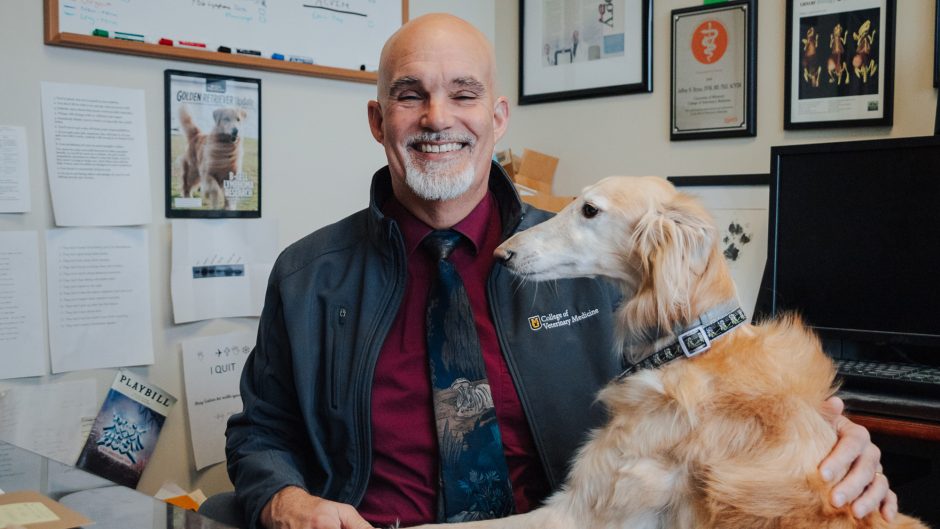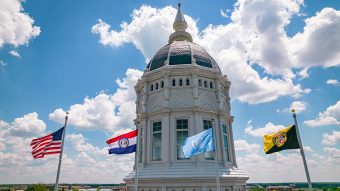
Feb. 19, 2024
Photo by Hanna Caldwell
Developing leadership skills isn’t just a practice reserved for students at the University of Missouri. Through the MU Provost Leadership Program (PLP), faculty can prepare for academic leadership positions by learning about their own strengths and weaknesses as a leader.
Coordinated by the Office of the Provost, the PLP splits faculty into several cohorts that meet for eight sessions throughout the academic year. The sessions cover topics including leadership topics, panel discussions and conversations with MU leaders. Members of the cohort take various assessments and then apply what they learn in different contexts.
Jeff Bryan, professor of medical oncology in the MU College of Veterinary Medicine, was in the 2020-21 Provost Leadership Program cohort and refers to the program as the best thing he’s done at MU. Bryan completed two evaluations that gave him strategies to develop his leadership abilities.
“One thing I learned very clearly from that 360 evaluation is that the team will function much better or more harmoniously with less stress if they feel sheltered, if they feel like the leader is watching out for the icebergs and making sure we avoid them rather than reacting together as a team to things we didn’t expect,” Bryan said.
The leadership profile didn’t just reflect Bryan’s own behaviors; it allowed him to learn about how others approach difficult situations and how he could better support people as a leader.
Megan Moore, chair of the School of Languages, Literatures, and Cultures, said the benefit of the self-assessment was seeing the advantages that each team member’s skills bring to the department.
“It’s a great tool for understanding where I sit in relation to my team, and I’m better at mobilizing my strengths and asking for help from those around me who are better at certain kinds of work,” Moore said.
Alex Socarides, associate provost for academic programs, and Carrie Nicholson, administrative consultant in the Office of the Provost, built the program together and facilitate the sessions. One of their goals is to make sure members of each cohort can openly share the joys and challenges that they face in their current roles.
“Every member of the PLP gets lots of opportunities to learn about themselves, about their strengths and weaknesses, and about how to help the people they work with,” Socarides said. “It’s enormously rewarding to watch aspiring leaders really work through hard issues – like how to manage tough conflicts or how to take on a major change project – and to have them come out the other end of the program more confident in their leadership skills.”
Read more from the Office of the Provost


